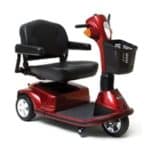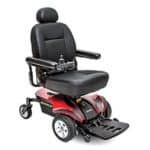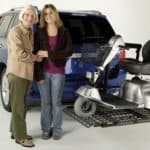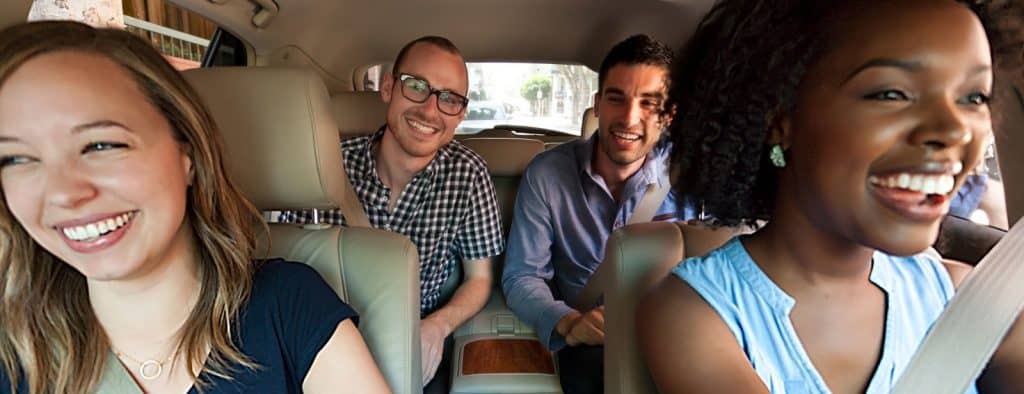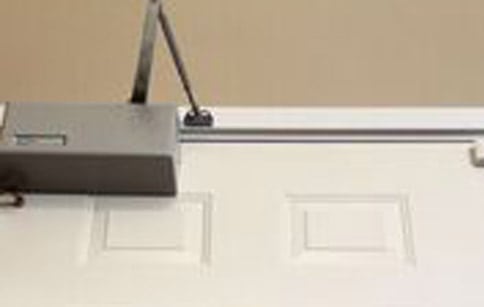Pacific Mobility celebrates your independence for Independence Day- and all year- with devices for all areas of life, from help at home to improved mood and social engagement.
Mobility is reported to be the most common disability experienced among seniors in this country, which opens the door to a variety of solutions, mobility devices and remedies to increase and improve access. Of the 40% of Americans aged 65 and older with a disability, two-thirds of these instances are related to difficulty climbing and walking. This common problem can wreak havoc with those seniors that want to stay in their own home or live independently. In fact, only one-fourth of seniors between the ages of 65 and 74 with a disability are able to live independently; mobility solutions and medical devices can make a difference in this statistic. Equipment that can help older Americans stay in their home and preserve their independence is worth celebration.
Pacific Mobility celebrates your independence for Independence Day with solutions that make a difference in all areas of your life:
Handy help for the house and home.
For seniors with mobility issues that want to stay in their own home, mobility devices can make a life-changing difference. From stairlifts to power chairs, these devices make areas of the home accessible- both indoors and outdoors! Electric door openers and porch lifts can provide that so-important outdoor time that helps people recharge and restore; as for indoors, stairlifts make steps, inclines, and entire flights a breeze that doesn’t require a helping hand. These lifts can also provide family and loved ones with peace of mind, knowing that their loved one is safe from a nasty fall on steps in the home. Over 100,000 people take a fall down the stairs each year that requires a trip to the emergency room, and these accidents claim around 1,000 lives annually. Don’t let your senior be another statistic.
Methods to make caregiving easier.
Don’t risk an injury to either caregiver or client; invest in lifts that make daily living activities much easier on all involved. Ceiling lifts, slings and shower buddies can make it easier for your caregiver to do his or her job without assistance, while also keeping your loved one- the client- safe and secure during lifts and transports.
Mobility options, on-the-go.
Giving up driving can be a debilitating repercussion of mobility issues; vehicle lifts make it feasible to get out and around. If you are among those that need a chair or scooter when you get where you are going, it can seem challenging and somewhat discouraging to find ways to transport these necessities. Choose from over twenty different mobility products that allow you to raise and stow your powerchair, manual chair, or scooter and that are designed to fit your distinct needs.
Increased social engagement.
Mobility limitations have been shown to significantly decrease social interactions, which can have a negative impact on overall well-being. Over time, a physical impairment that affects mobility can reduce social interactions both inside and outside of the residence. This social withdrawal is unhealthy and difficult to combat, given that many affected are isolated individuals that don’t reach out for help. Having the freedom to move about and engage both in and out of the home can preserve socialization and contribute to holistic well-being.
Solutions that improve mood.
It has been found that limited mobility can cause depression in some populations of older Americans, which can drastically deteriorate quality of life. In a recent study of aging African-American participants, results showed that African-American women exhibiting major depressive disorder symptoms were three-times more likely to have mobility limitations. This study is a mere sub-section of the overall population of Americans over the age of 65 that experience physical impairment of some kind. It makes sense that as individuals lose their independence and freedom of mobility, they suffer some level of depression. Treating depression in older patients has its challenges, including fear of stigma, resistance to treatment, and difficulty tolerating mood regulating medications.
Pacific Mobility celebrates your independence.
Seniors attain a sense of dignity from preserving their autonomy and independence; Pacific Mobility recognizes that with devices and solutions to improve access, convenience, and safety. Give your senior the opportunity to maintain their self-respect by providing information about mobility options that can help them to make informed decisions about their care. Too many seniors are overlooked as decisions are made on their behalf, including those about medical and end-of-life care. Good practice standards dictate that seniors should be treated with dignity, keeping them in the know, which contributes to a positive environment. This positive environment is key in effectively treating older people and assisting them to thrive.
Help someone you love to achieve the independence that they deserve this Independence Day; look at mobility aids to expand access, make life simpler, and improve overall quality of life. Talk with an expert at Pacific Mobility to discover the various ways to increase convenience and caregiving today.
President, Husband, Father, Grandfather Graduate of UC Davis- Bio Sci Major- Go Aggies! Jeff has extensive experience in all of Pacific Mobility’s products and services, and specializes in accessibility products as well as stairlifts, ceiling lifts and custom wheel chairs. His hobbies include spending time with family, gardening, mountain biking, exercising and off road motorcycle riding.
24 years as Owner/President of Pacific Mobility Center – selling, installing, and servicing stairlifts, porch lifts, ceiling lifts, pool lifts, handicap ramping, specialty wheelchairs, scooters, power wheel chairs, and other power mobility devices
Certified Environmental Access Consultant since 2008
Licensed General Contractor since 1998
Certified Aging in Place Specialist since 2016
Board Member for Home Access Professionals
Member of Association of Members of the Accessibility Equipment Industry (AEMA)


